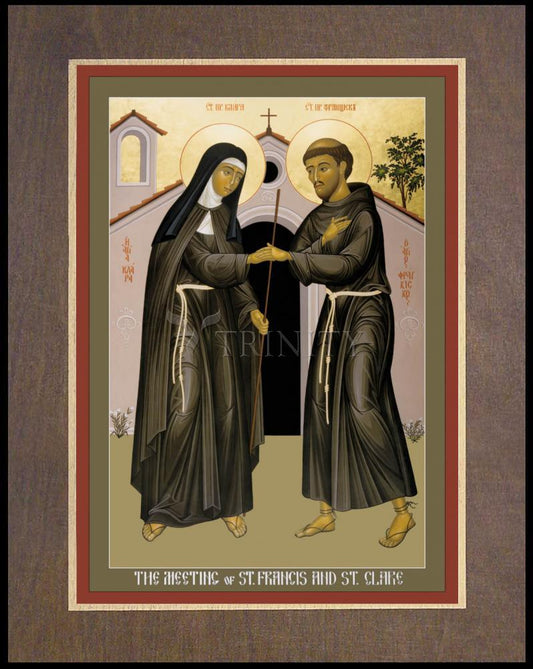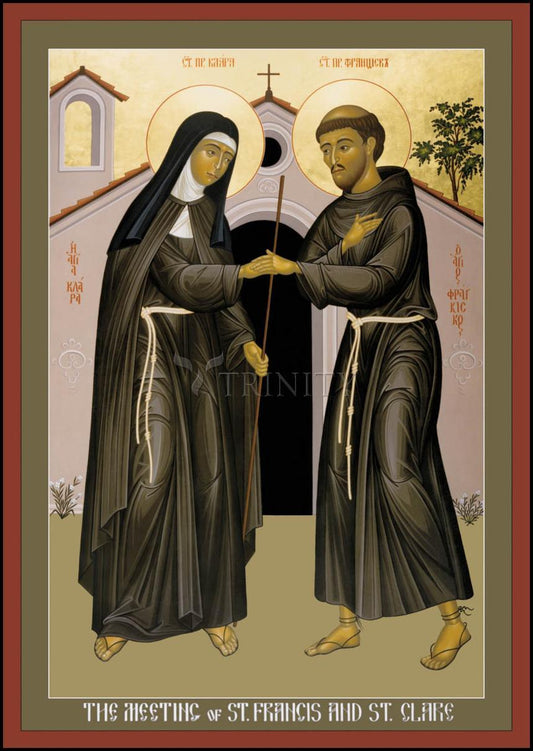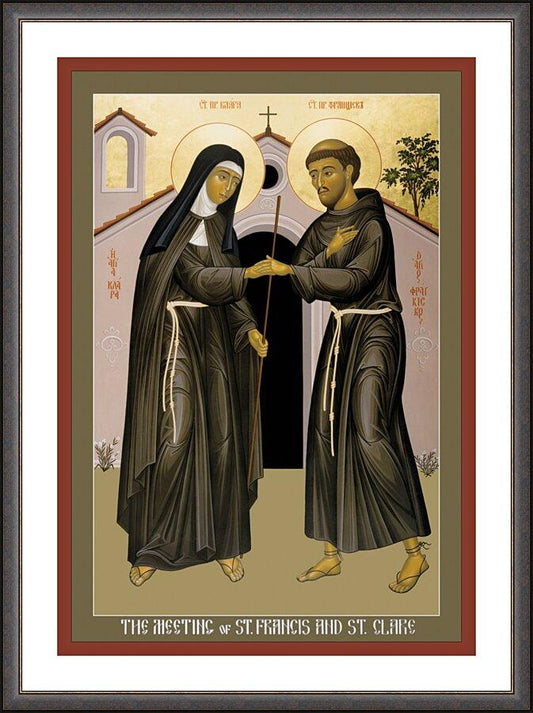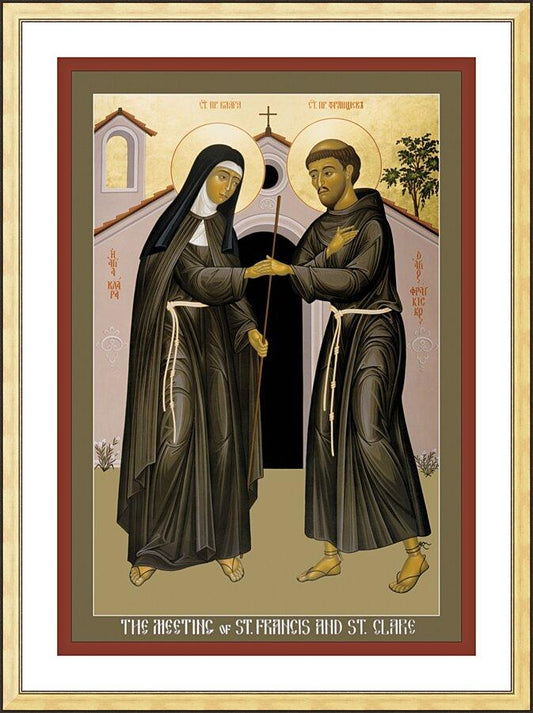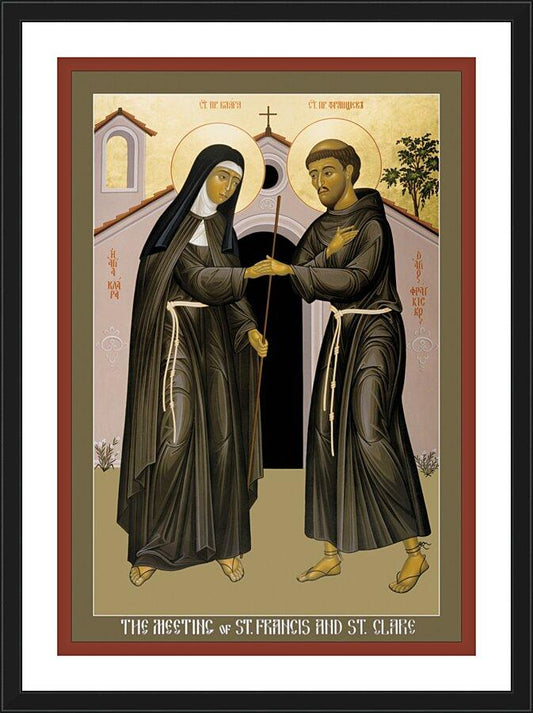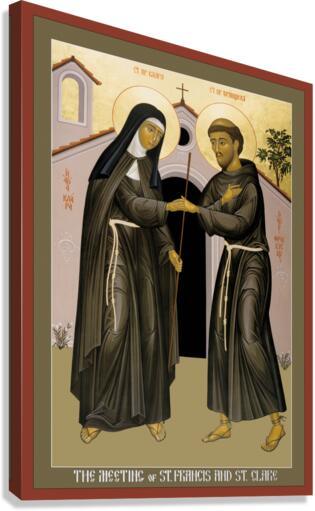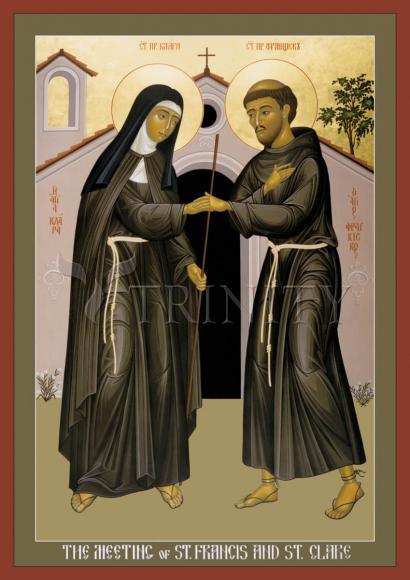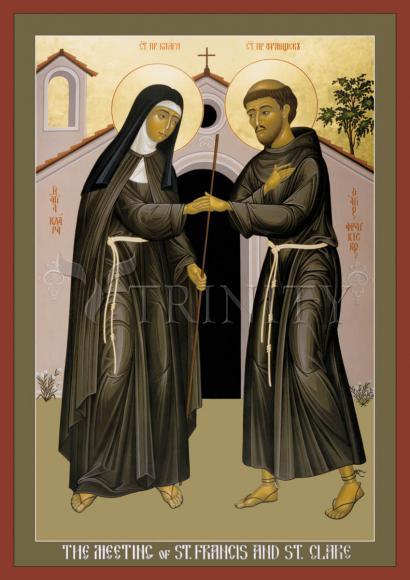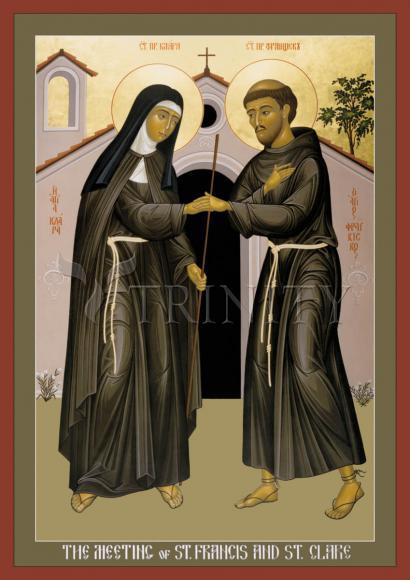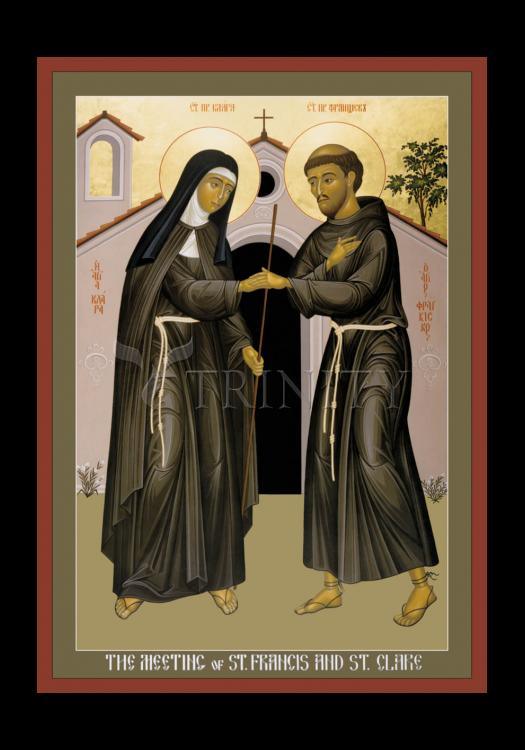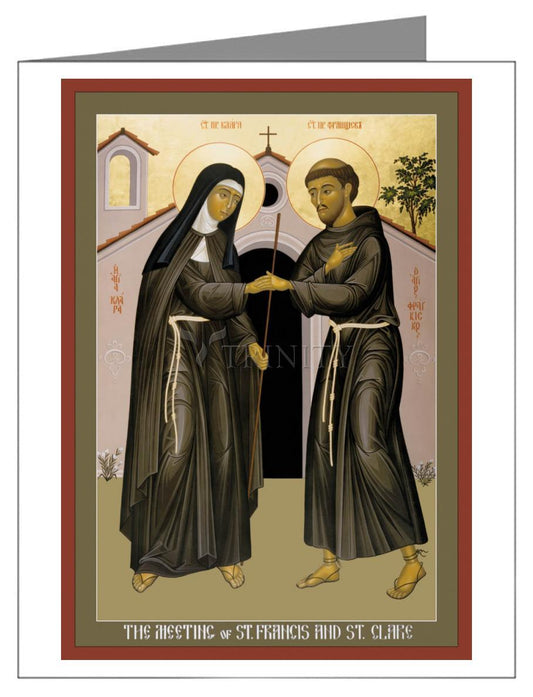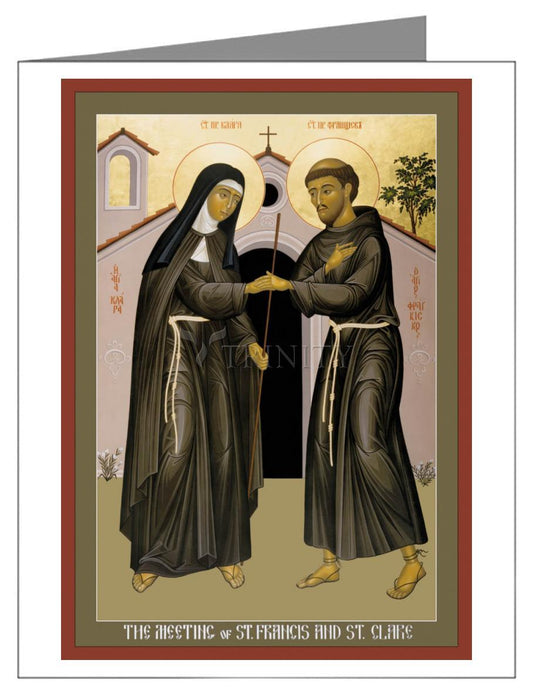Francis Bernadone (1182-1226) grew up a leader and lover of revelry. After finding emptiness in several endeavors, he realized God had other plans for him. In 1206 his search for conversion led him to the ancient church at San Damiano. While he was praying there, he heard Christ on the crucifix speak to him, "Francis, repair my church." Francis took the message literally and began to repair the crumbling building aided money from fabric he took from his father's shop. Renounced by his father, he begged for stones and rebuilt the San Damiano church with his own hands, not realizing that it was the larger task that God had in mind.
Francis started to preach. Slowly companions came to Francis, people who wanted to follow his life of sleeping in the open, begging for food to eat"and loving God. With companions, Francis knew he had to find some kind of direction to this life, so he opened the Bible in three places. He read the command to the rich young man to sell all his goods and give to the poor, the order to the apostles to take nothing on their journey, and the demand to take up the cross daily. The rule for his brothers " live by the Gospel. Francis is frequently quoted as saying: "Preach the Gospel at all times, if necessary use words."
From a noble and influential family, Clare Offreduccio (1193-1253), was prepared by her mother for a life of generosity and service. As a teenager Clare often heard Francis preach. Moved by her love for God and attracted to Francis' love for the Gospel message, Clare rejected her family's plans for her and arranged secretly to join him in his life of prayer and service. She founded her own community of "poor ladies," and was the first woman to write a rule of life for religious women. During her lifetime, she stressed devotion, kindness, tenderness and practicality to the women who were cloistered with her in the church of San Damiano. Clare is remembered as Francis' most faithful follower and the co-founder of the Franciscan movement. Therefore, we look to both Francis and Clare to teach us Franciscan values, and seek to imitate them as inspired servant leaders.
Stories about St. Francis and St. Clare are plentiful. Who has not heard of Francis preaching to hundreds of birds about being thankful to God for their wonderful clothes, for their independence, and for God's care for them? The story tells us the birds stood still as he walked among them, only flying off when he said they could leave. It was often reported that wild animals " rabbits, birds, even a wolf " became tame before Francis. Or early in his conversion, the experience of Francis' encounter with a leper he met on the road? Though having a great aversion to the lepers, Francis was led to embrace the leper and sought to minister to this marginalized community. And of Clare, who as her convent was about to be attacked, prayed before the Blessed Sacrament, forcing the attackers to flee?
Possibly the greatest heritage Francis and Clare leave for us is a deeply rooted desire for God, a fervent commitment to prayer, and a life that generates action. Today one and a half million Franciscans live throughout the world in many groups belonging to the three Orders " the Friars Minor, the Poor Clares, and the Third Order Franciscans. Franciscan institutions today include colleges and universities, hospitals, missions serving the poor and marginalized, and organizations engaging in activities on behalf of peace and the environment globally and locally.



